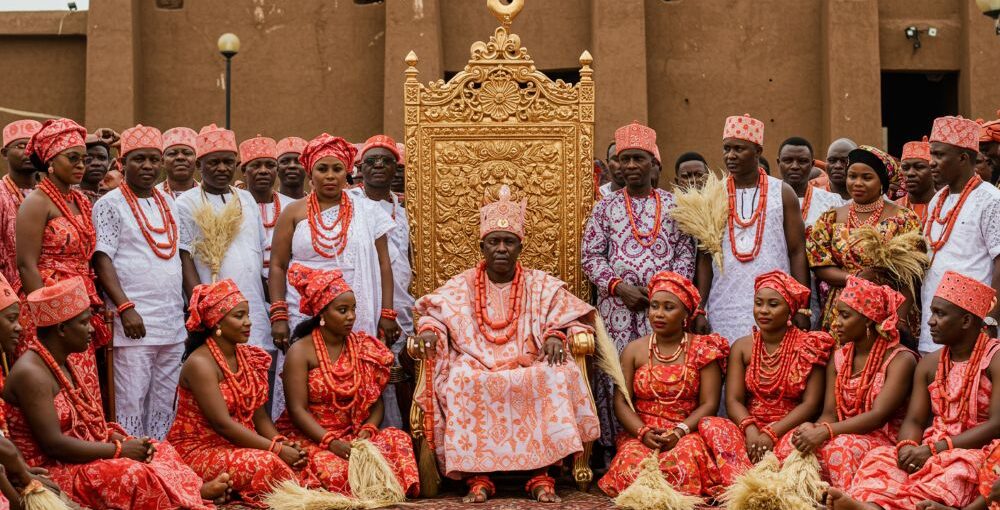Introduction: A Festival of Power, Purity, and Prestige
Deep in the heart of Benin City, the ancient capital of the Benin Kingdom, lies a sacred tradition that blends monarchical reverence, spiritual cleansing, and ancestral memory—the Igue Festival. Celebrated annually during the final quarter of the year, the Igue Festival is more than just a cultural ceremony; it is a spiritual reenactment of kingship, an act of renewing the kingdom’s blessings, and a symbol of continuity for one of Africa’s oldest royal dynasties.
Historical Roots of the Igue Festival
The Igue Festival dates back to the reign of Oba Ewuare the Great (circa 1440–1473 AD), one of the most legendary kings in the history of the Benin Empire. After surviving a fierce battle and achieving victory, Oba Ewuare proclaimed a thanksgiving ritual to celebrate his triumph and spiritually cleanse himself and the kingdom. This ritual evolved into the Igue Festival, observed today as a royal tradition with deep mystical and ancestral significance.
Core Rituals and Symbolism
👑 Blessing of the Oba
At the heart of the festival is the ritual anointing of the Oba’s head, believed to renew his spiritual strength and transfer blessings to the entire kingdom. This sacred rite is private, held within the royal palace, and attended only by chiefs and select palace priests.
🏮 Ewere Leaves Ceremony
The Ewere ceremony involves young women presenting symbolic leaves (called Ewere) to the Oba and chiefs, which represent peace, purity, and goodwill. It is a moment of joy, song, and laughter as blessings are exchanged throughout the royal court.
💃🏽 Cultural Parades and Masquerades
In public celebrations, you’ll witness colorful processions, traditional dancers, masquerades, and royal retinues reenacting the historical and spiritual journey of the Benin people.
🛡️ Ancestral Connection
The Igue Festival is also a time when the living commune with the dead—ancestral altars are cleansed, offerings are made, and the royal lineage is honored for its role in maintaining cosmic balance in the kingdom.
Why the Igue Festival Matters Today
The Igue Festival continues to serve as a unifying cultural symbol for the Edo people. It reinforces the relevance of indigenous governance, showcases the spiritual authority of the Oba of Benin, and reminds modern Nigeria of the depth of pre-colonial civilization and cultural pride rooted in Benin’s legacy.
Tourism and Cultural Diplomacy
- ✈️ Cultural Tourism: The festival attracts local and international tourists, researchers, and diasporan Africans seeking to reconnect with their roots.
- 🤝 Cultural Diplomacy: The Oba’s palace receives dignitaries and royal guests during this period, reinforcing traditional diplomacy and pan-African identity.
- 🧵 Arts and Craftsmanship: From Ivory and bronze works to ceremonial attire, the Igue season supports traditional artisans and cultural enterprises.
Conclusion: A Living Legacy of the Benin Kingdom
The Igue Festival is a living bridge between ancient Benin and modern Nigeria—a celebration where royal ritual, ancestral reverence, and cultural expression unite. As the Oba of Benin blesses his people, the kingdom echoes with the strength of its past and the promise of its future. For every Edo son or daughter—and for lovers of culture everywhere—Igue is more than a festival; it is identity preserved and power renewed.


